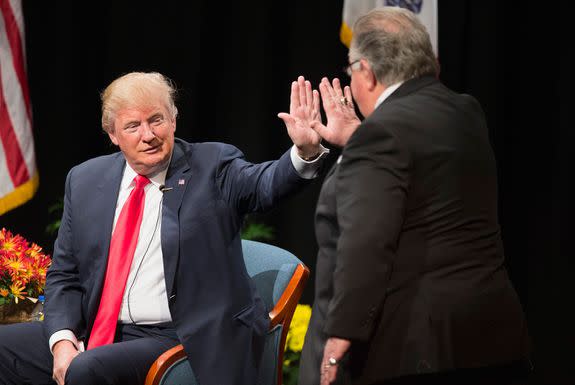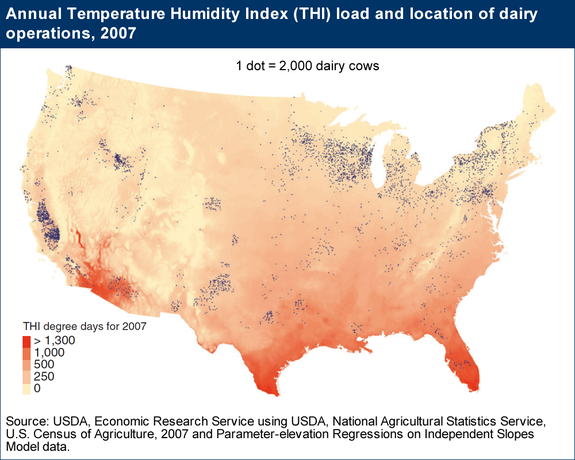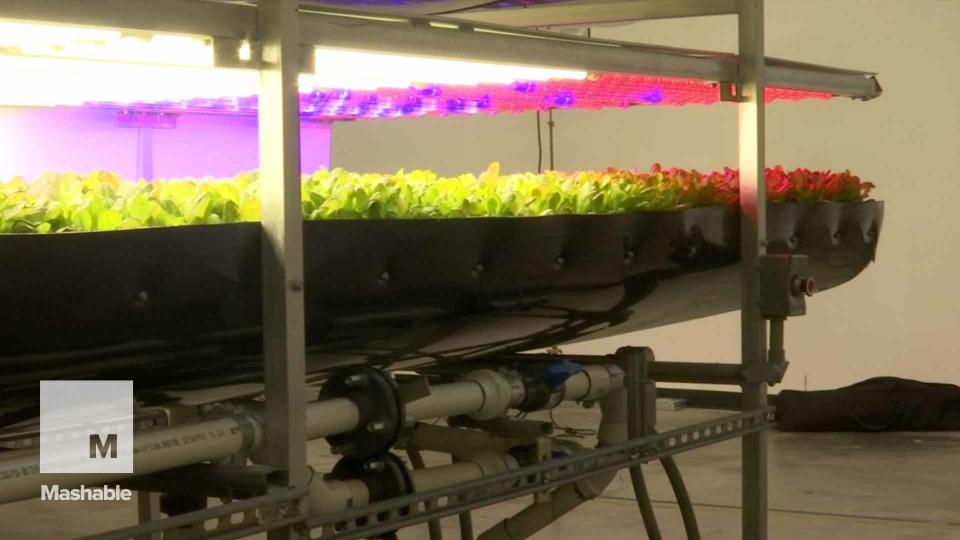Trump might pick a non-scientist to be USDA's 'chief scientist'

In Trump's world, you don't have to be a scientist to land a high-level science job.
President Donald Trump has reportedly picked Sam Clovis — a conservative talk show radio host and climate change denier — to be the "chief scientist" of the U.S. Department of Agriculture's research division. If appointed, he'll oversee key scientific work on everything from nutrition to the effects of rising temperatures on food supplies.
SEE ALSO: Here's why thousands of scientists are (and aren't) marching on Saturday
The top position is supposed to be filled by "distinguished scientists with specialized or significant experience in agricultural research, education, and economics," according to the 2008 Farm Bill.
Yet Clovis, who was one of Trump's earliest campaign advisers, doesn't exactly check off the required boxes, according to reports by the Washington Post, ProPublica, and other outlets.

Image: scott olson/Getty Images
He does hold bachelor's degrees in political science and government, along with a master's in business administration and a doctoral degree in public administration, his LinkedIn page shows. He's also spoken publicly of his 25-year service in the Air Force and emphasizes his expertise in foreign policy and national security.
But Clovis has never taken a graduate course in science and has published almost no academic work — two bare-minimum requirements of any fledgling scientist.
Instead, the Iowa native is better known for his conservative radio show "Impact With Sam Clovis" and for passionately advocating for Trump on television. He also made an unsuccessful run for the U.S. Senate in 2014.
Clovis's leadership of the USDA's Research, Education, and Economics division would be his third agriculture-related role with Trump. On the campaign trail, Clovis advised Trump on agricultural issues, and he is now the senior White House adviser within the USDA.

Image: USDA
As the division's undersecretary, Clovis would oversee the USDA's extensive scientific mission and its economic bureaus, including the Natural Agricultural Statistics Service and the Economic Research Service.
Catherine Woteki, who was the undersecretary during the Obama administration, said appointing Clovis to that position would be like tapping someone without a medical background to lead the National Institutes of Health, one of the world's foremost medical research centers.
"This position is the chief scientist of the Department of Agriculture. It should be a person who evaluates the scientific body of evidence and moves appropriately from there," she told ProPublica.
The USDA's undersecretary for research, education, and economics has historically consulted on a wide range of issues for which a scientific understanding is crucial, including the Zika and Ebola outbreaks and homeland security issues related to food safety, Woteki told the news organization.

Image: USDA
Climate change-related issues also fall under the undersecretary's purview. Yet Clovis has decried the mainstream scientific consensus that human activity is primarily to blame for global warming as "junk science."
"I don’t think there’s any substantive information available to me that doesn’t raise as many questions as it does answers," Clovis said in a 2014 interview with Iowa Public Radio. "So I'm a skeptic.”
The Trump administration's hostility toward scientists and their research hardly comes as a surprise.
Last week, the Environmental Protection Administration said it would not reappoint half the expert members of a board that advises the agency on the integrity of its science.
Instead, Trump's EPA will potentially consider replacing the academic scientists with people who work for chemical and fossil fuel companies — as in, the industries whose pollution the EPA is supposed to regulate.
WATCH: This is the biggest indoor vertical garden in the world


